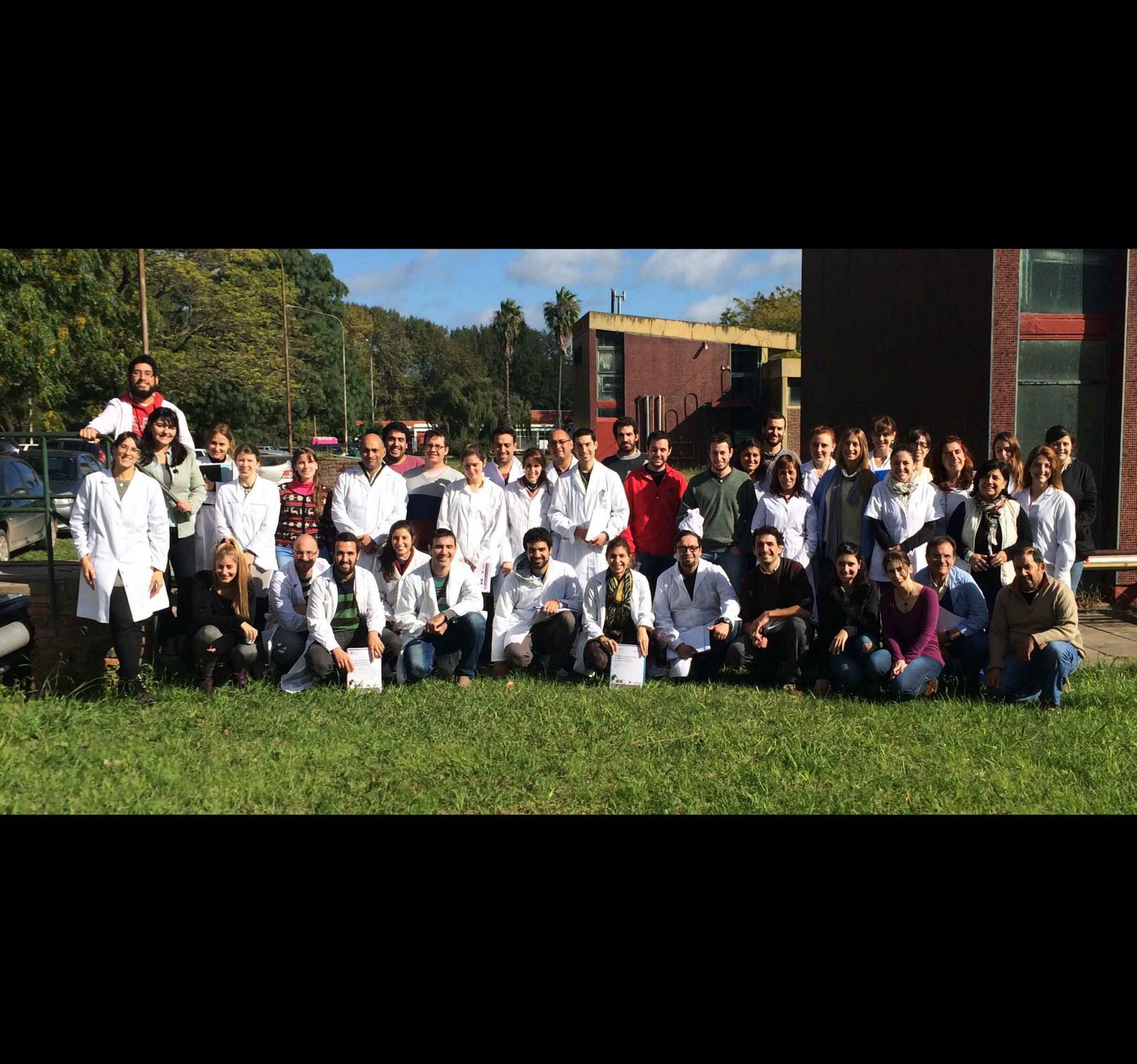The success of a new porcine and bovine immunology course, run by Dr Maria Montoya, (in collaboration with Dr. Patricia Zamorano and Dr. Claudia Mongini from the Institute of Virology at INTA in Buenos Aires), could pave the way for The Pirbright Institute to significantly develop its international collaboration with similar bodies - both in Argentina and across South America.
Dr Montoya, a world leading porcine immunologist from The Pirbright Institute, previously worked in Argentina on a joint research project; supported by the Argentinian government (CONICET) with the Institute of Virology – which is part of Argentina’s National Institute of Agricultural Technology (INTA) and similar to the Biotechnology and Biological Sciences Research Council (BBSRC) in the UK.
The Institute of Virology has several groups working with foot-and-mouth disease virus (FMDV), and is the only organisation in Argentina with high containment facilities, able to perform experiments with FMDV in large animals. Whilst working there, Dr Montoya agreed to help develop and deliver a new course on bovine and porcine veterinary immunology.
Beef, and increasingly pork production are some of Argentina’s biggest industries, so there was major interest in the practical and theoretical course from vets and others working in animal health. Interest also extended to the Argentine media; where the course was featured on Pampero TV - a popular programme similar to the BBC’s Countryfile.
Dr Montoya said: “It was a one-week theoretical and practical course aimed at postgraduates working in animal health; to increase their knowledge of immunology for implementing in future assays (experimental tests). We expected interest, but we were surprised at the level of demand and were very oversubscribed. Participants came from all over Argentina, as well as from other South American countries; such as Brazil, Uruguay, Paraguay, Colombia and Ecuador.
“As I was researching at the Institute, it seemed a good time to organise the course which I developed and delivered with Dr Zamorano - a bovine immunologist whom I’ve known for several years and who is based at the Institute of Virology”, she said.
Dr Montoya and colleagues managed to secure support for the course from the prestigious International Union of Immunological Societies (IUIS) and INTA agreed to support and promote it. INTA have shown interest in sponsoring the course in future, and Dr Montoya is hopeful they can run it every two years.
Dr Montoya, who has many scientific contacts in Spanish speaking countries, believes the interest in the course and in working with The Pirbright Institute indicates the potential collective opportunity; which she is keen to develop. “Given the current level of demand, we may further develop the course; enabling more people to attend in future. There is a fantastic opportunity here for the Institute to significantly develop its existing links not only with Argentina but right across South America”, she said.
“Although we are highly regarded in South America, we have comparatively few links and I would like to help develop these. The Institute has a very strong global reputation for scientific excellence and our staff, students and partner bodies have greatly benefitted from the successful collaborations we have developed in other parts of the world.
“These international partnerships enable our researchers to study the viruses we work on where they are endemic (persistent), and to learn from locally based scientists. This also means we have crucial links in place if new virus strains emerge. International collaboration enables the Institute to develop and share its knowledge, expertise and training; building an even stronger global reputation. I look forward to helping make this happen in areas such South America”, said Dr Montoya.
